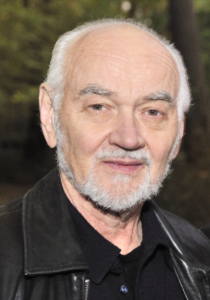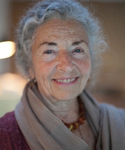“How does birth impact society? How does society impact birth?
Join APPPAH for the 19th International Congress at the Berkeley Marina Double Tree Hotel in Berkeley, CA December 3-6, 2015, to explore the questions and answers.
They invite participants to celebrate new trends, old friends, great views, and inspiring speakers and workshops. According to their website post: “our lives are changing with the changes in how we deliver babies. As we explore the past, present, and future with the supportive surround of salt air, ocean breezes, majestic sights, and ambient sounds of the waves and rolling fog and peaking city light of San Francisco and Marin County, come and share the mission of how society effects and birth effects society.”
“The Congress keynote presenters will share the evolution of ethology as it relates to skills and techniques for birth and how all this impacts society which will impact birth. Keynote speakers will be: Thomas Verny, MD, DPsych., DHL, FRCPC, FAPA, Barbara Findeisen, Dr. Jaak Panksepp, Dr. Gerlinde A. S. Metz, Robbie E. Davis-Floyd, PhD, Michael Mendizza, Karen Strange, CPM, Jeanne Ohm, D.C., and Peter Prontzos, PhD. We encourage presenters and attendees in the fields of medicine, psychology, researchers, and the arts to attend along with psychologists, occupational and physical therapist, social workers, NICU staff, ob/gyn professionals, childbirth educators, doulas, pediatricians, early childhood educators, health advocates, professionals in somatic healing practices, and parents from all walks of life.”
“Celebrate life and join us!!”
Work scholar volunteer applications are available by emailing the conference chair: conference@birthpsychology.com
Each month APPPAH will feature speakers who are presenting at the conference.
This month Jaak Panksepp talks about The Science of Emotion
Jaak Panksepp, Ph.D.
Professor of Neuroscience
Bailey Endowed Professor of Animal-Well Being Science
Washington State University
Jaak Panksepp’s scientific contributions include more than 400 papers devoted to the study of basic emotional and motivational processes of mammalian brains, with a focus on understanding how mammalian brains control affective processes, so as to better understand primal human emotions from infants to adults. His recent work has focused primarily on the subcortical brain mechanisms of sadness (brain PANIC/separation distress circuitry) and joy (brain PLAY/laughter circuitry), work that has implications for the treatment of autism, ADHD and depression. His major books are: i) Affective Neuroscience (Oxford, 1998), ii) Textbook of Biological Psychiatry (Wiley, 2004) and Archaeology of Mind (Norton, 2012). This work provides novel perspectives for how consciousness emerged in human brain evolution.
The title of Jaak’s presentation is: Toward a scientific understanding of primal emotional feelings in infants: Implications for optimal development, psychotherapies, and new mind medicines.
In brief, his presentation will summarize the scientific case for understanding the nature of emotional consciousness (affective feelings) in all mammals, from human infants to the adults of all species. The emerging knowledge on SEEKING, FEAR, RAGE, LUST, CARE, PANIC and PLAY System illuminates the depth of our emotional nature, and offers various new approaches to development of therapies for psychiatric disorders, especially autism, ADHD and depression. It also illuminates core-SELF processes that generate organismic coherence and values, providing new ways to understand how higher mental processes are programmed by life experiences and culture.
For up-to-date conference information please visit the conference website







